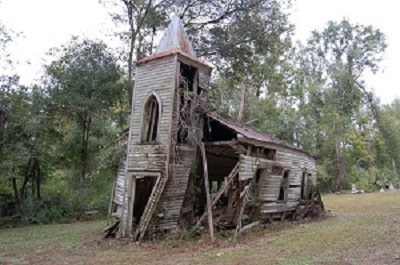The mission of the church “to make disciples”, as recorded for us in Matthew 28:19-20, was a foundational and intentional practice for the church of Jesus Christ for the first three centuries of its existence and this mission was based on one-on-one and small community relationships. In the early fourth century, the Roman Emperor Constantine converted to Christianity and his son Emperor Theodosius established Christianity as the state religion in AD 380. These historical events saw the beginning of what is called Constantinian Christendom, a term popularised by the theologian John H. Yoder.
Under Constantinian Christendom “making disciples” moved from relationships to classrooms, introduced a book with stories of people who lived long ago, and emphasized attendance at a weekly gathering of strangers.
The Roman Empire had brought to the world social cohesion but, following the fall of the western empire, political & social norms began to change. Over several centuries, the cohesive impact of a unifying government was lost. Into this vacuum stepped the Church, wielding ever-increasing political power as well as spiritual authority. It became the prominent institution of the medieval world. All the way through the middle ages the Church and the State sparred for the top position and sought to control each other. The State wanted to interfere and wield power in Church affairs and the Church exerted power by fielding its own armies, building cities and amassing great wealth. According to Encyclopedia Britannica, ‘this period presented a confusing and often contradictory picture of a society attempting to structure itself politically on a spiritual basis’.
Even so, the socio-political atmosphere eventually integrated Christianity into the very fabric of western culture especially over the last 500 years. The Christian faith became the accepted dominant religion of Western civilization, resulting in many cultural and social advantages for Christianity.
But it turns out that the myriad of factors required to allow one form of life to flourish is very fragile. Small shifts in culture trigger large-scale changes which disrupt entire systems. This perspective makes sense of what is happening in the western church. The age of Christendom, when the factors required for the Church (to flourish) in a certain form has shifted. Now the Church, in its typical form, finds itself in an environment less supportive or even antagonistic towards its existence. The typical paradigm for being the church is crumbling before our eyes.
What kinds of emotional responses does this evoke from us? There are the more challenging or unpleasant emotions of anxiety, discomfort, fear, and even anger. Simultaneously, many of us feel relief when we can trace the factors contributing to the demise of what has been comfortably familiar to us. The unknown is far more intimidating than the known. Knowing what’s happening, understanding the cultural shifts behind Christendom’s demise, is comforting.
Given this, the best way to help people move forward towards a new future is to raise their awareness about what is actually happening. It is time for church leaders to embrace reality as they find it, describing the end of Christendom. When we know God’s promises and are in relationship with Almighty God, then describing how our world is changing is far less intimidating. Many people are already trying to make sense of what is happening. Providing concepts which explain our reality brings relief.
As a follow on from understanding these changes, I believe the Church in the 21st century will have to become more like the pre-Constantine Church. Discipleship will have to be an unfolding relational process that naturally introduces individuals to Jesus, community, worship and ongoing spiritual growth and reproduction. Core beliefs and practices of our faith will need to be passionately reclaimed, embraced and lived in a new cultural context.
Making disciples includes all of God’s people. We are all part of the disciple-making movement of God in the world. So, our calling is to make disciples of others as well as ourselves until the end of all things.

Yes Col, I thoroughly believe we are back to ‘pre-Constantine’, but I am encouraged by small groups that refuse to follow the new-age populous models catering to the ‘prosperity for all who believe’ to more like Paul with the Galations……………we need to exercise our faith that begates GRACE that begats salvation. Spreading Christ-like love through telling the good-news of the Gospel, particularly in times of fear and uncertainty in todays world – has never given us more opportunity than now – discipleship was what Jesus asked us to do after He returned to His Father – having the faith to do His mission is our prayer then.
Thanks John. Discipleship was what Jesus asked us to do after He returned to His Father. Unfortunately, the discipleship practices of the current church are not what Jesus asked us to do, they are more Constantinian. Like you I believe we have to go back to the ‘pre-Constantine’ way of ‘Making Disciples’ if we are to be obedient to the words of Jesus.